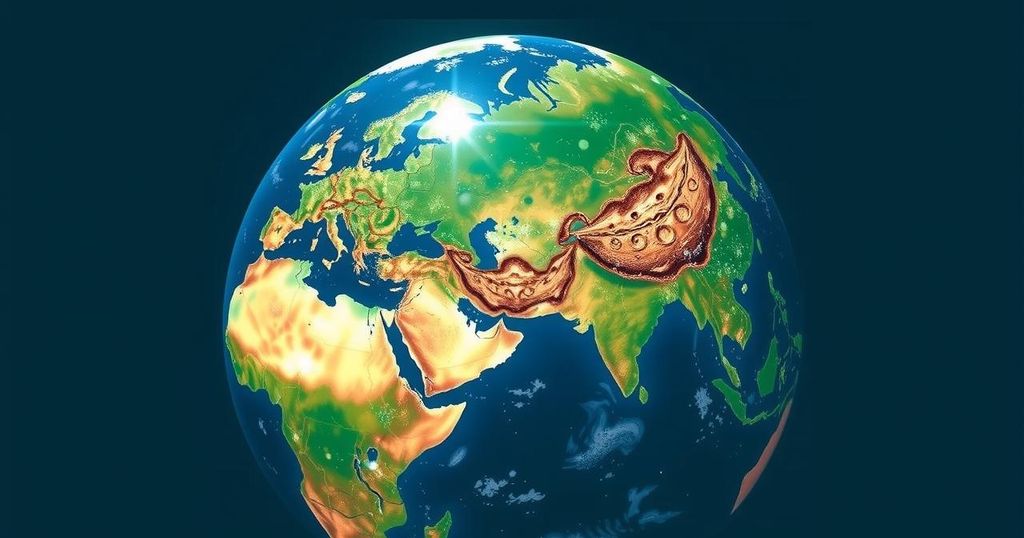The International Court of Justice has initiated hearings on governmental responsibilities regarding climate change, with nearly 100 countries participating. Vanuatu, significantly affected by climate change, leads the initiative, seeking to clarify international obligations under environmental law. The court’s findings, while non-binding, could influence global climate litigation and the legal ramifications of state actions related to climate harm. Hearings continue until December 13, with a ruling expected in 2025.
The International Court of Justice (ICJ) in The Hague has commenced hearings concerning critical climate-related legal responsibilities of governments. Testimonies from nearly 100 countries, including Vanuatu—an island nation heavily affected by climate change—will be presented as the court seeks to determine nations’ obligations in mitigating climate change and addressing damages attributable to global warming. Although the court’s rulings are non-binding, the findings may significantly influence global climate litigation.
The initiative for this legal opinion was first proposed by law students in Fiji five years ago, later championed by Vanuatu, particularly after a devastating cyclone impacted 80% of its populace last year. Responding to urgent pleas from Vanuatu and other developing nations, the UN General Assembly prompted the ICJ to examine two pivotal questions focused on international obligations to combat climate change and the repercussions when states contribute to environmental harm. Vanuatu will present its evidence first, with its special envoy Ralph Regenvanu emphasizing the urgency for clear international legal obligations regarding climate action.
The hearings will encompass analysis from various global actors, including the United States and China, as well as the oil-producing organization OPEC. The sessions are set to continue until December 13, with the court’s advisory opinion anticipated in 2025. This court case follows the conclusion of the COP29 climate summit in Azerbaijan, where commitments from wealthy nations prompted dissatisfaction among developing countries, which deemed the proposed funding inadequate for their climate adaptation needs.
Climate change poses a significant threat globally, impacting vulnerable nations disproportionately, especially small island states like Vanuatu. The ICJ case seeks to establish clearer international legal standards concerning governmental obligations to mitigate climate change effects and address reparations for resultant damages. This legal initiative reflects broader concerns over the adequacy of international climate finance and the responsibilities of higher-emission countries towards those facing the immediate consequences of climate-related disasters. Vanuatu’s involvement underscores the urgent need for accountability and legal frameworks to guide climate action, which has become increasingly critical as reports of severe weather events and rising sea levels escalate. The expected outcomes from this case could lay the groundwork for future legal precedents and influence climate policy negotiations globally.
In summary, the hearings at the ICJ represent a crucial opportunity to define the legal responsibilities of states in addressing climate change and holding them accountable for their environmental impact. As Vanuatu leads the charge for a legal opinion, the potential implications of this case could reverberate through international law and climate legislation, particularly enhancing the cases of smaller nations seeking reparations for climate damages. The forthcoming sessions promise to be instrumental in shaping the future of global climate governance and action.
Original Source: www.bbc.co.uk






